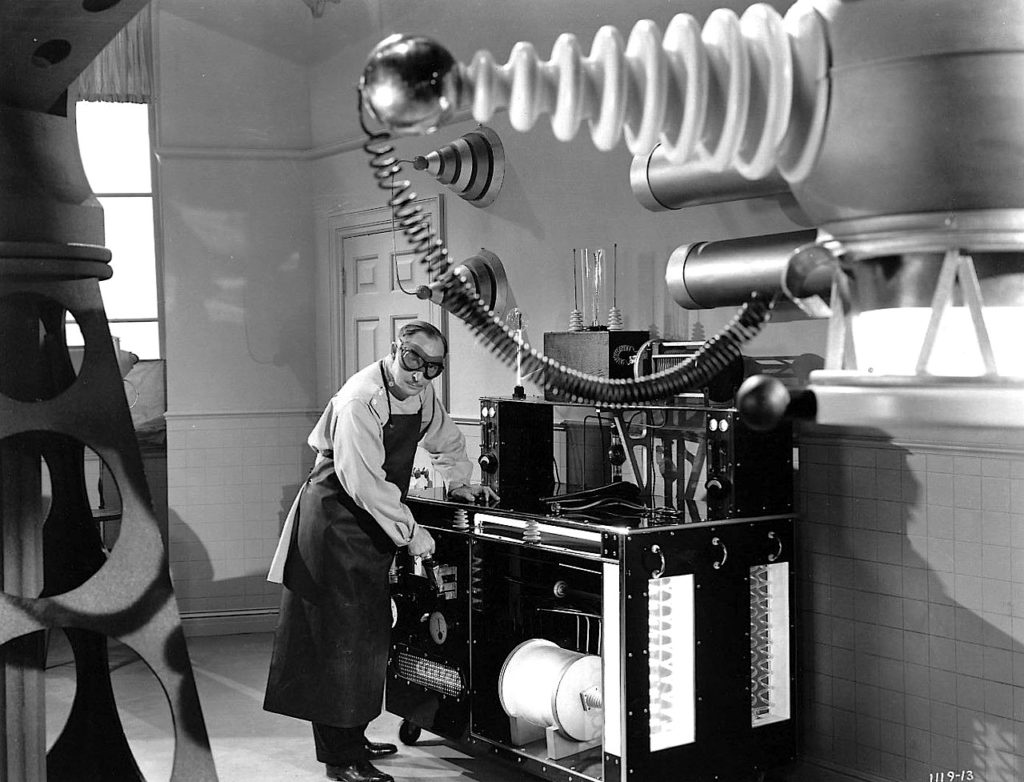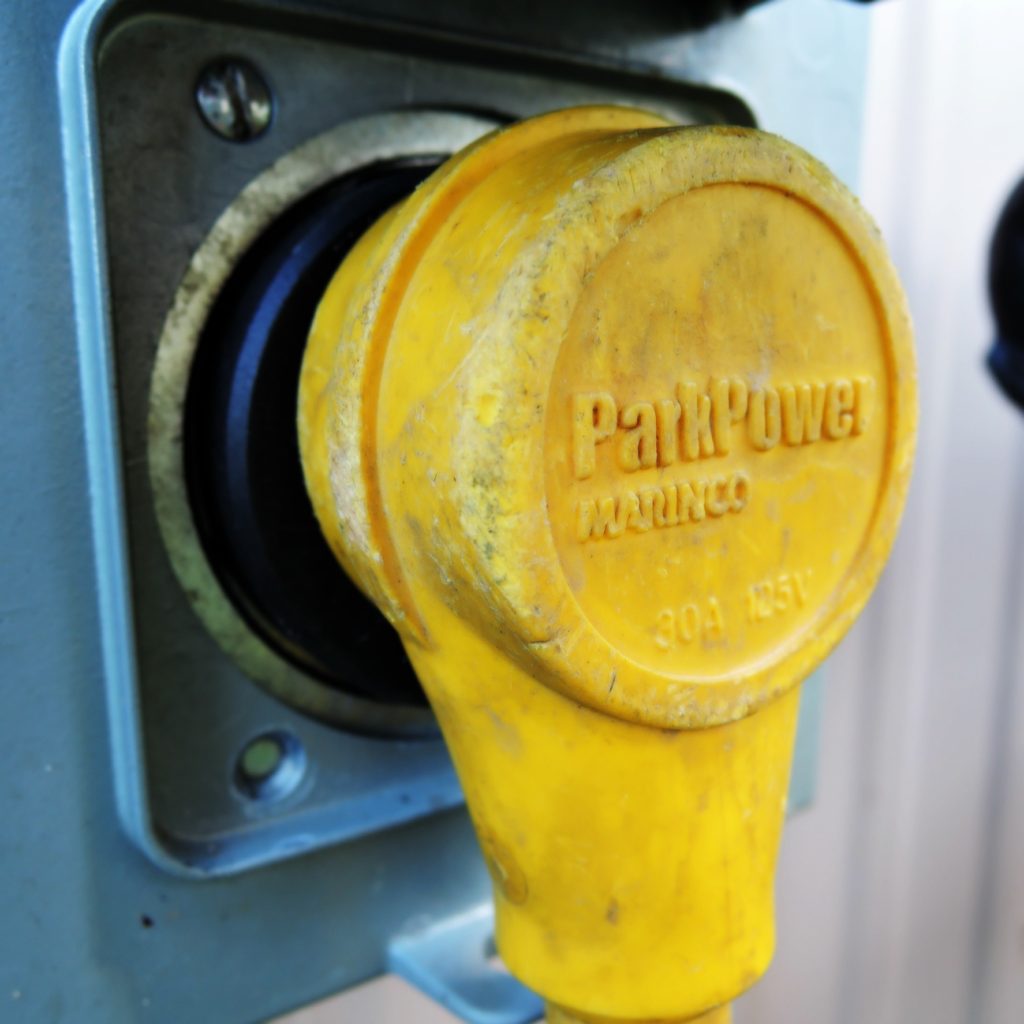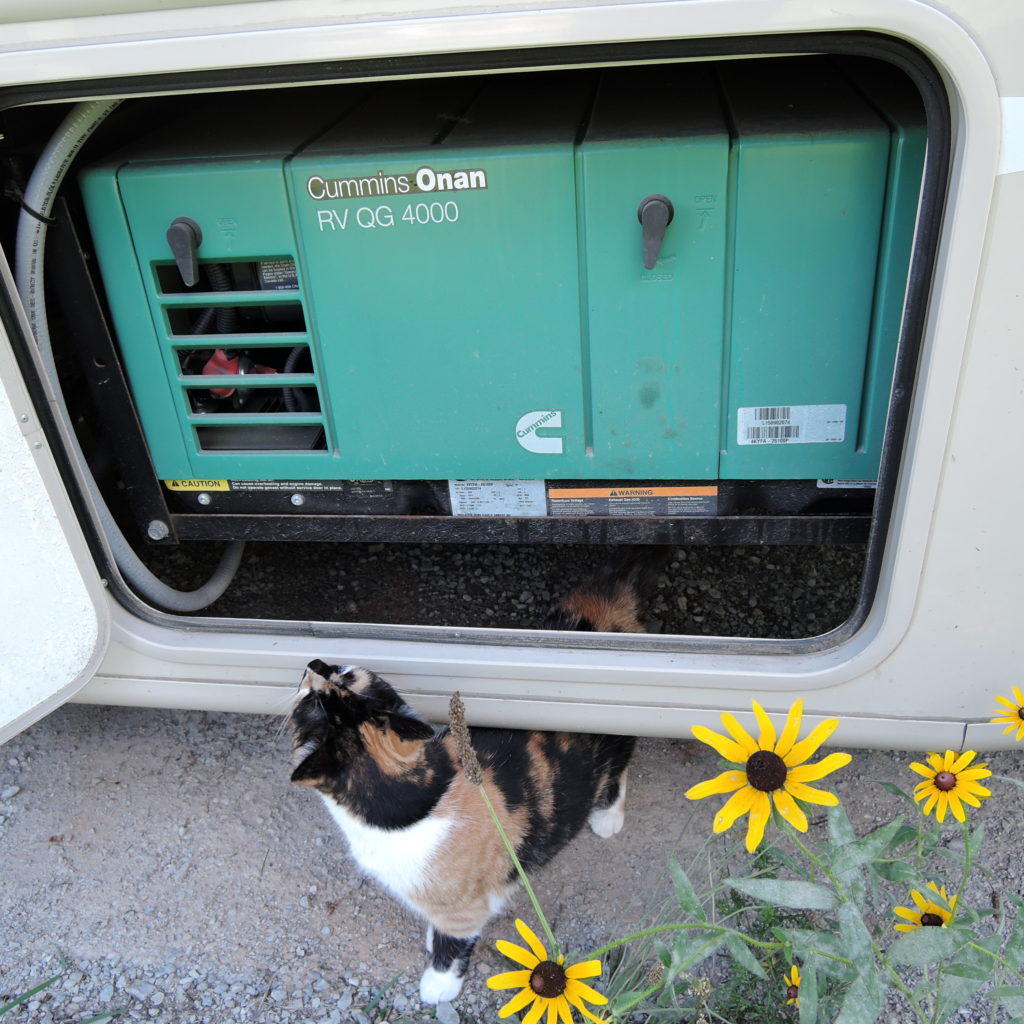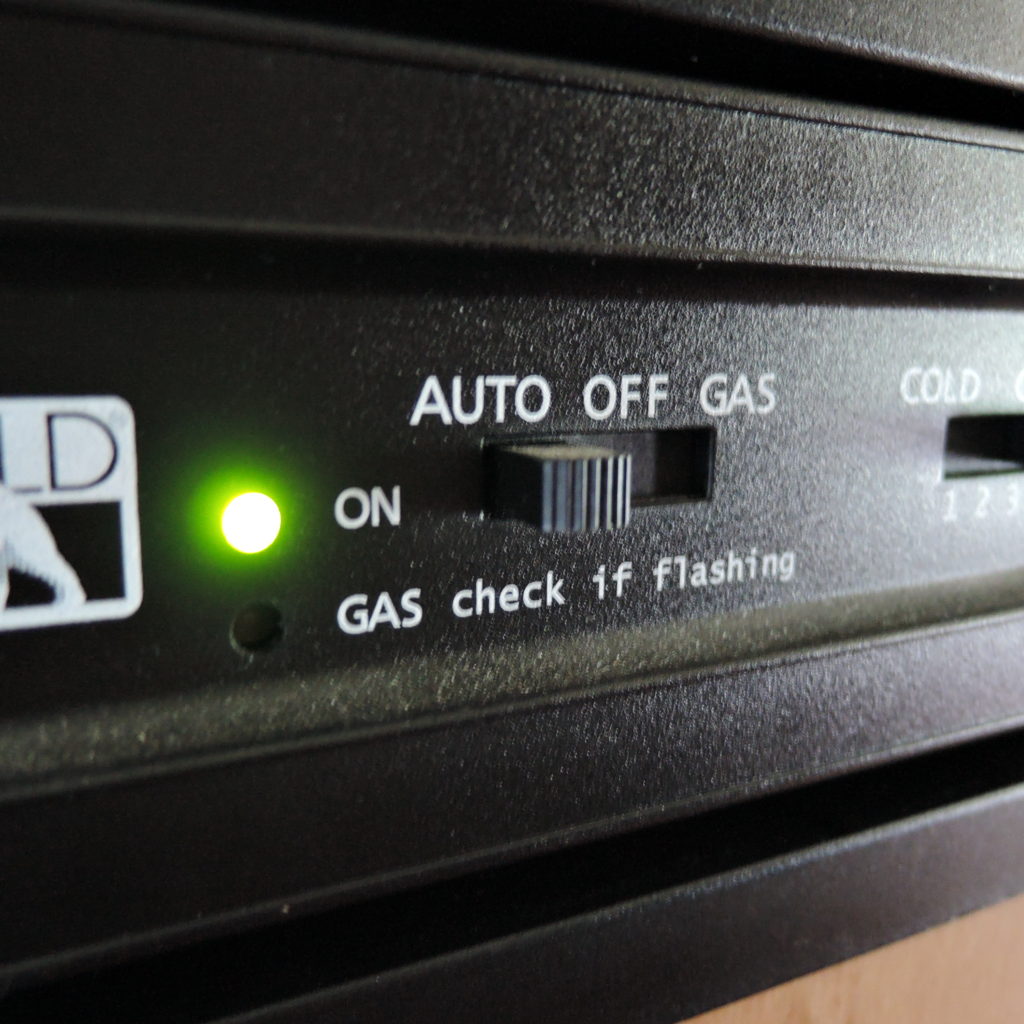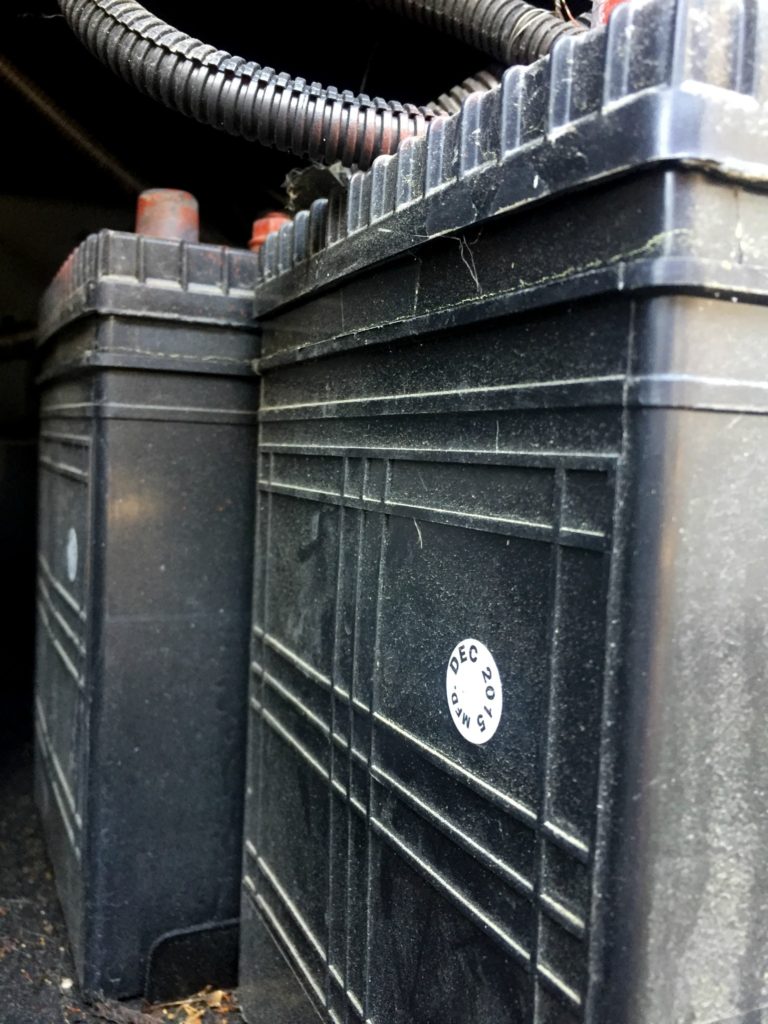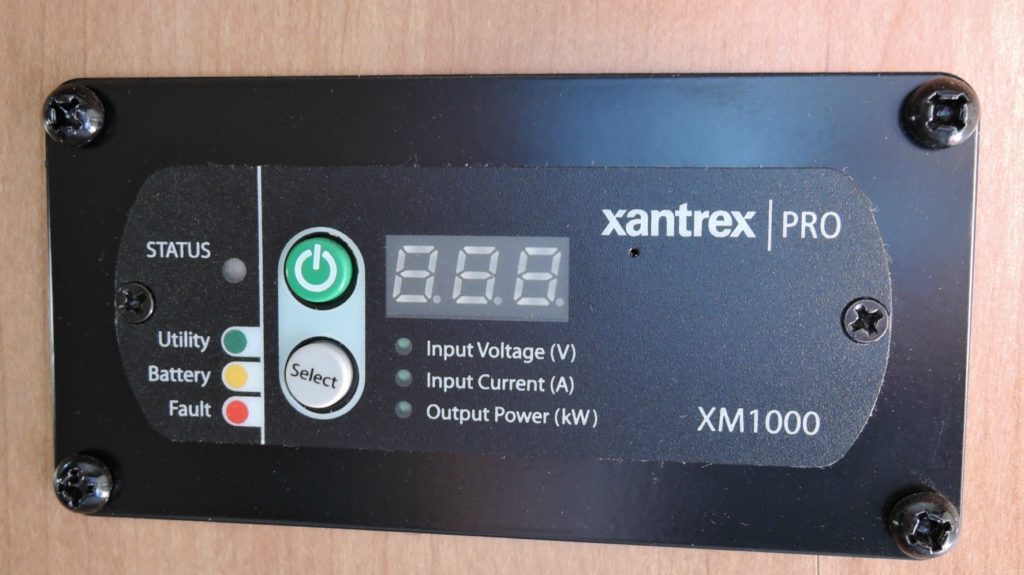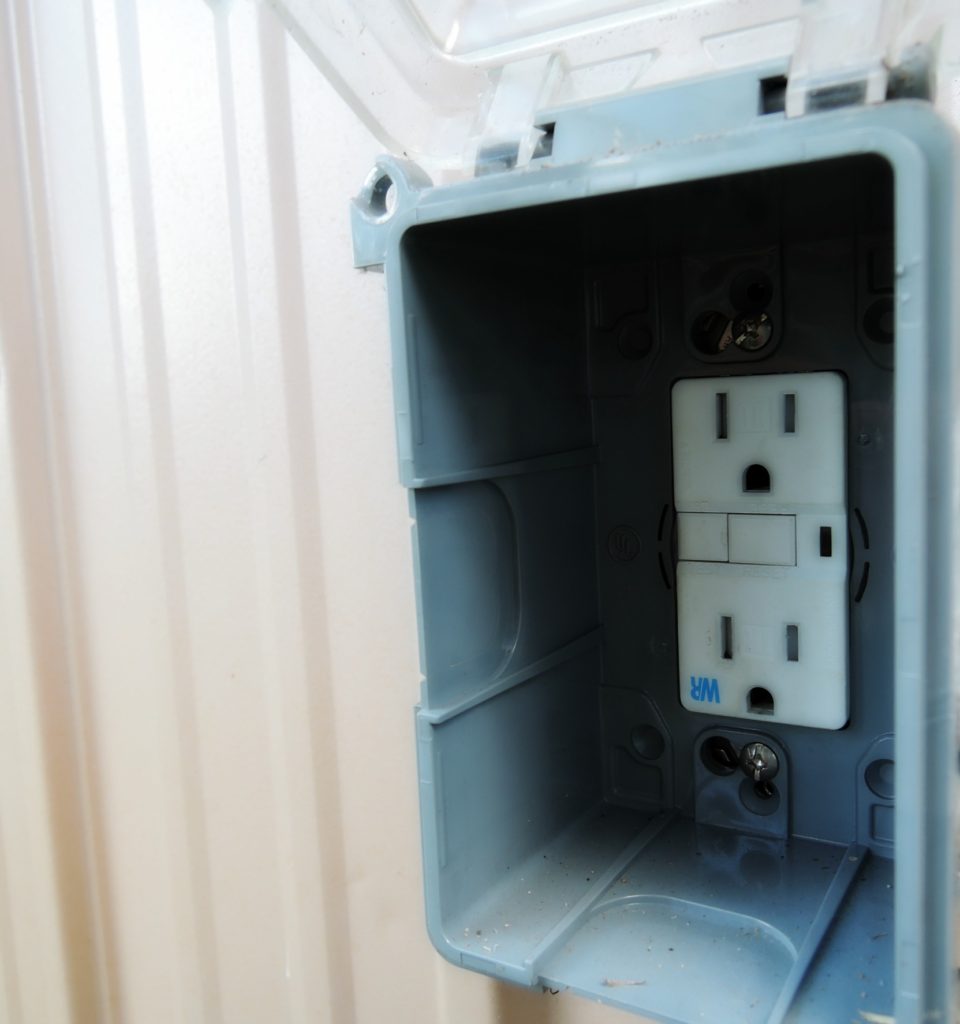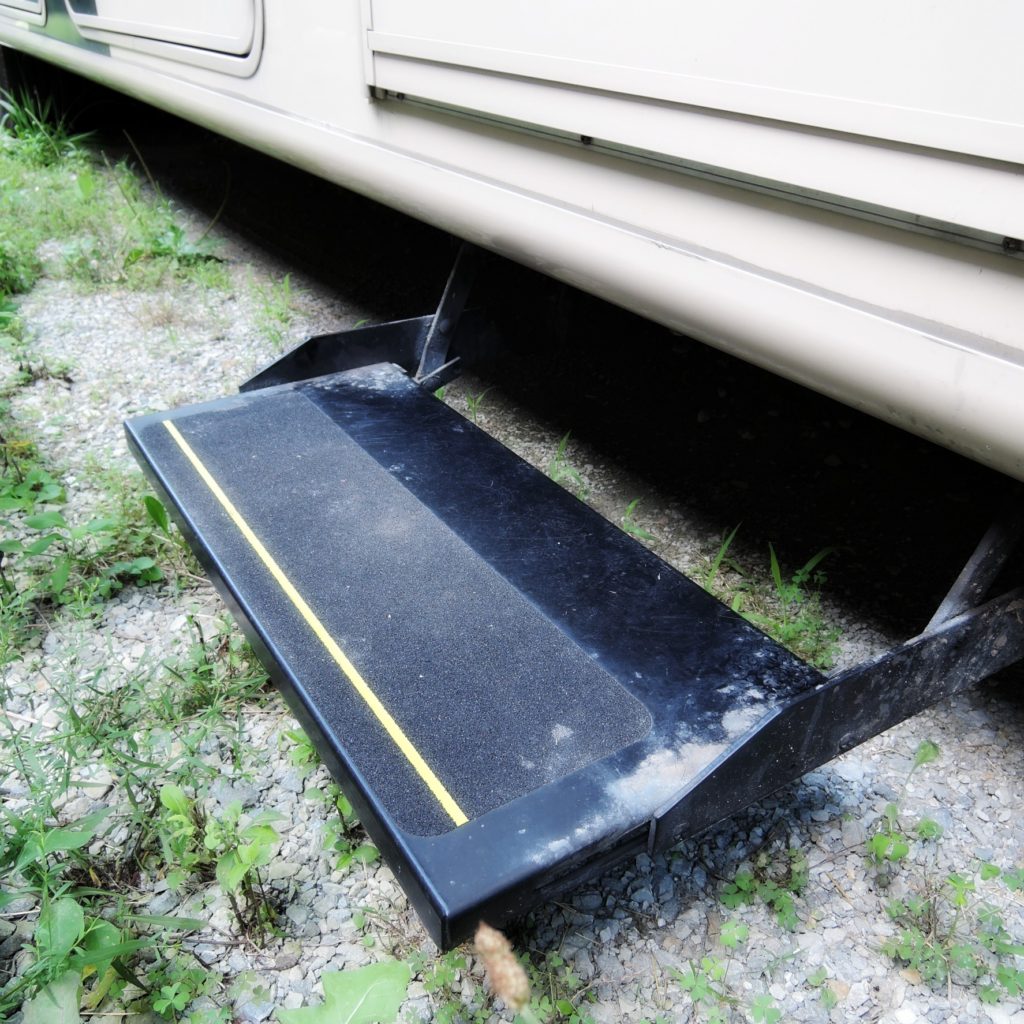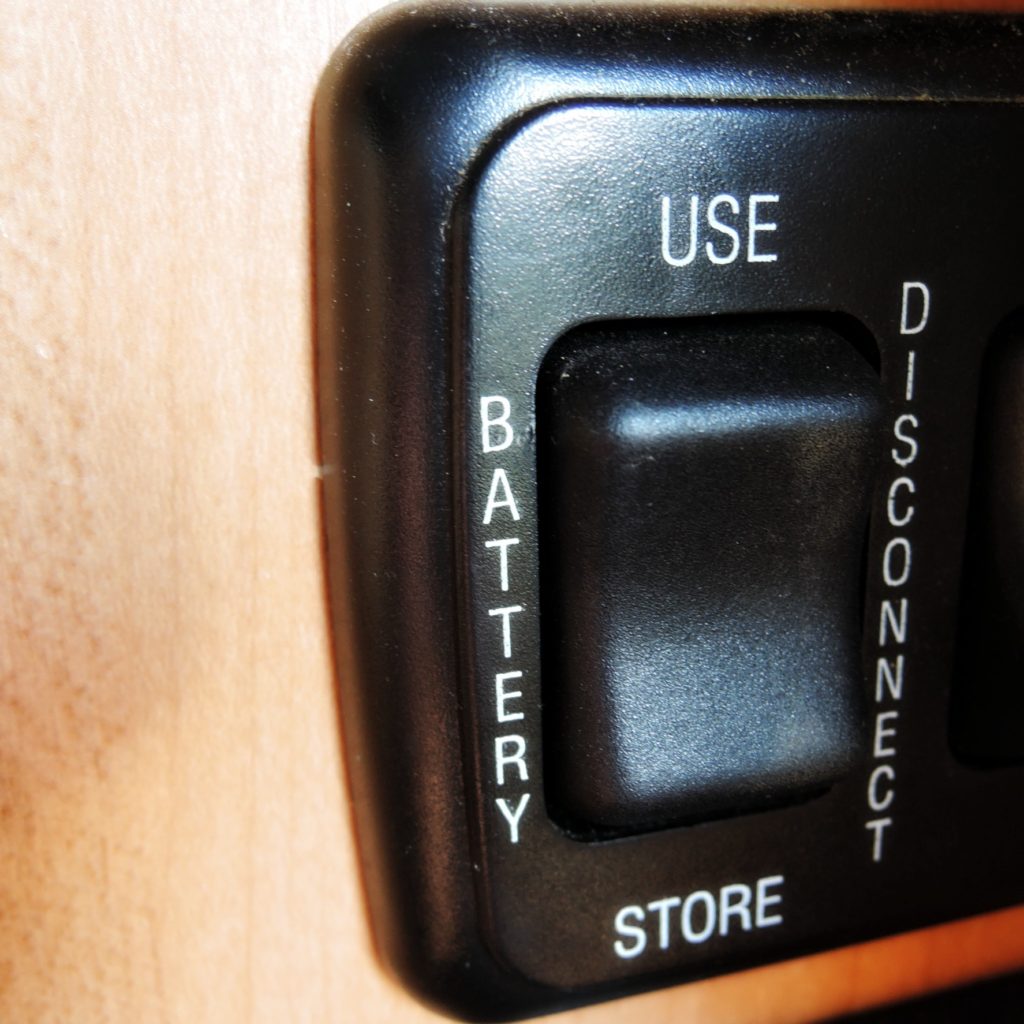A simple, no-tech explanation of all that electrical stuff in your RV.
(30 Amp Motorhomes)
You usually don’t think about the power in your home too much. Just plug in an appliance or flip a switch and everything works. It’s unlimited power, courtesy of the electric company.
But an RV is different. They are much smaller systems, have multiple power sources, and each has limitations. Basically you’ve got a little power plant on wheels.
Managing your RV power use is important if you don’t want a failure. This means every time you flip a swiitch or plug something in you need to know what power system is being used. Where is the power coming from? How long will it be until that power is depleted or gets overloaded?
So before you let that ceiling fan run all day or plug in a coffee pot, let’s be sure you know what’s giving it juice.
What runs on 30 Amp Park Power Electricity?
Air Conditioner
Microwave
Refrigerator
Electrical Outlets
TVs
Coach Battery Charger
When your RV is plugged into a 30 amp receptacle, like at a camp site, everything in your coach can run. But not at the same time. Your power converter (that metal box with all the fuses) can only handle so much draw. It’s not like your big fuse box at home. It’s a much smaller system in the RV. Which usually means that you can’t run both the air conditioner and the microwave at the same time. Nor can you plug in every countertop gadget at once. If you ran the TV, coffee pot, toaster, waffle iron, and hair dryer all at once you’d probably pop a breaker or blow a fuse. It’s just too much draw.
So even when you’re plugged in at camp, watch out for how many devices are running. Want to use the microwave? Turn off the air conditioner first. Need to blow dry your hair? Better check what else is plugged in beforehand.
What runs on the Generator?
Air Conditioner
Microwave
Refrigerator
Electrical Outlets
TVs
Coach Battery Charger
The RV Generator is a substitute for plugging into 30 amp park power. It will run everything, following the same rules. All your electrical outlets will work, but you still can’t use the air conditioner and microwave at the same time.
Where does the Generator get its power? From your gas tank. It uses the same fuel tank as your engine. So if you pull into WalMart for the night with the gas gauge on empty, you won’t be able to use the generator. In fact, RV generators will shut off before they drain your gas tank completely.
What runs on Propane?
Refrigerator
Furnace Heater
Stove Top
Oven
When you’re driving down the road the refrigerator will run on propane. If you keep the switch set to Auto, you won’t even need to think about it. Your fridge has a smart system and knows when to use propane versus electricity.
The furnace is different. The heater runs on propane, but the fan that blows hot air through the RV runs on your coach batteries. So the furnace uses both the propane and battery systems to work.
Keep an eye on your propane level via your monitoring gauges. Fill up when you’re below 20-30% capacity.
What runs on the Coach Batteries?
Furnace Fan
Ceiling Lights
Ceiling Fans
Slide-Outs
Power Awning
USB Ports
Keep those coach batteries charged! Lots of important things run solely off the batteries, like the slide-outs and ceiling lights. RV batteries are big, heavy, and expensive, and many motorhomes have more than one. Keeping them charged will help extend their life.
Plugging into power, running the generator, or running the engine will charge your house batteries. (You may need to manually turn the On switch for your battery bank to charge.)
Keep a close eye on the monitor station for your battery status. Getting low? Better charge up!
And always turn the coach batteries off when you store the RV. Tiny, hidden power drains will deplete the batteries even when the RV is sitting unused.
What runs on the Inverter?
Select Outlets
Select TVs
If your RV has an Inverter, it will power a few select electrical outlets using the coach batteries. Which outlets? That depends on your RV. Usually it’s the main TV and one or two other outlets.
When would you use the Inverter? When you’re dry camping (meaning not plugged in) and it’s inappropriate to run the generator, like during quiet hours at a campground.
But beware! Using the inverter to watch TV with all the ceiling fans and lights on could drain your coach batteries in just a few hours. So really be judicious with your power needs when using the Inverter. And keep a watch on those battery levels!
What runs on a Regular House Outlet?
Refrigerator
Furnace Fan
Electrical Outlets
TVs
Coach Battery Charger
So you’re parked in someone’s driveway and you’ve got the appropriate adapter plug to hook your 30 amp cord up to a regular house current outlet. What will run? Your refrigerator for sure. And your coach batteries will get charged, so that means the ceiling fans and lights will run. But don’t try to use much else.
Plugging into regular house current can be really sketchy. Your RV doesn’t like it, and the house may not be happy either. We’ve popped breakers in both and even melted a power cord because something was just not right.
DO NOT run the air conditioner or microwave when plugged into house current.
Beware of using countertop appliances, like a coffee pot. That’s too much of a load on a not-perfect power source.
The refrigerator, furnace fan, and TV will run just fine on house current as long as you’re not using a bunch of other outlets.
What runs on the Engine Battery?
Power Steps
Some Auxiliary Systems
Coach Battery Charger
The engine battery under the hood that starts your RV usually operates the power steps. It might also run other auxiliary systems like a radio or back up camera. The engine battery charges the coach batteries when you drive, but you may have to manually turn the battery bank switch to On.
Think before you turn it on!
Know which power system is running your stuff.
Check your battery and propane levels.
Don’t overload your power source.
Use one big appliance at a time, and don’t use too many small appliances.
Be careful when plugged into a regular house outlet and don’t run the air conditioner or microwave.
Turn everything off when your trip is done and you store the RV.
And lastly – Don’t worry. This will all be second nature soon enough. It’s only confusing the first hundred times!

